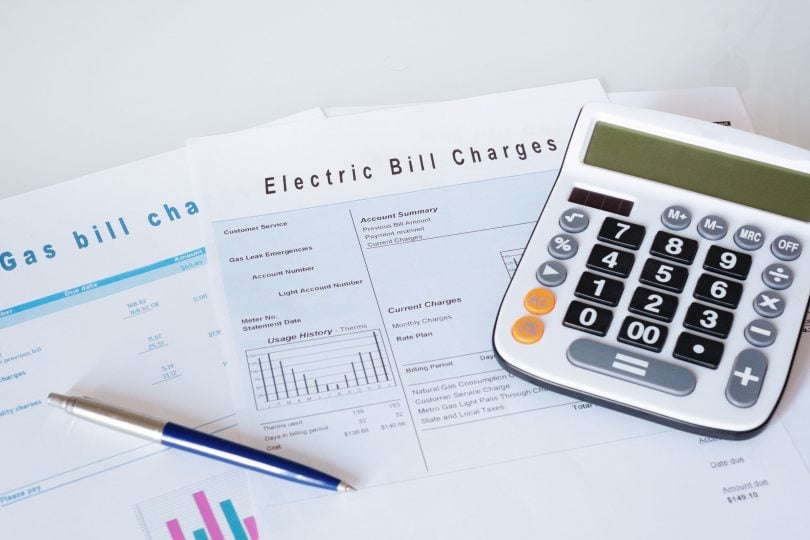Before moving to a new home, you’ll likely try to create a budget that estimates how much it will cost to make the change. Calculating your utility costs can easily be missed, but certainly needs to be a part of that calculation to ensure that your new home is truly within your budget. So? We’ve collected our best tips on how to plan your utility budget in your new home. You’re about to be the most educated home buyer on the market.
First, look at your current bills
How much electricity, water, and oil/gas have you been using at your current home? This will give you a ballpark estimate of your usage habits and somewhere to start in making a guess for your new home. Do take into consideration that a significant change in the size of your home will either increase or decrease your usage — so if you want to get really technical, divide the square footage of your current home by your usage (for example, kWh of electricity), and then apply that number to the square footage of your new home.
From there, call the utility companies in your new location and ask about their rates. Use this information to make a quick calculation, and you’ll have a general estimate of what you’ll be paying.
Electricity
Different parts of the country calculate electricity costs using different factors, but you can use these general principles to determine your likely cost for the average electricity bill for a two bedroom apartment, for instance.
- What is the size of your new home? Do you have additional outdoor lighting that will take electricity?
- What kind of appliances and lighting do you have? Higher efficiency, newer appliances will use less electricity to run, and lighting systems like CFL or LED bulbs use significantly less energy
- Are you using a lot of energy during peak hours? Many electric companies use some variation of time-variant electricity pricing to help avoid “peak use” times that create a critical demand on power production. Find out what your new company’s pricing structure looks like
Oil and Gas
The American Gas Association reports that the average U.S. household consumes about 72.5 million BTUs of natural gas per year, whether for heating, cooking, or gas-run appliances. The Energy Information Administration shows the average household heating with oil used 517 gallons per month, though of course, that varies widely by climate. You can check this table to see slightly more specific estimates for regions of the U.S. Then, answer these questions:
- Currently, what is your average gas bill? Or your average oil bill? This should give you a fairly good picture of your use patterns
- Are you changing climates such that you would need to use more or less heat?
- Is your new home significantly better (or worse) insulated than your previous home?
Water
According to the nonprofit organization Circle of Blue, the average water bill in the U.S. is about $40 per month, based on a family of four using 100 gallons per person, per day. You, of course, can decrease that number by using less water or installing more water-efficient appliances like low-flow showerheads and dual flush toilets, but for general cost estimate, this is a decent baseline. Using that statistic, take a look at your average water bill per month, and then extrapolate onto your new home.
Cable and Internet
Switching over utilities from the previous resident is a good time to consider making changes to your subscriptions. Look at your current average internet bill to determine what you’re actually using and what you would like to have at your new home. You may be able to save by purchasing a bundled plan that includes phone, internet, cable, and so forth. Or? You may choose to get only internet and use mobile phones and online “television” instead. If you find that this is more in line with your current use patterns, it may be the best route.
Aside from determining your likely costs, you may want to start by asking yourself the question: how much should I pay for utilities given my monthly income? Consider making a family budget using your actual income and set expenses to see how much you have left over. This can help determine your choices for cable and internet and possibly motivate you to take steps toward greater home efficiency!








